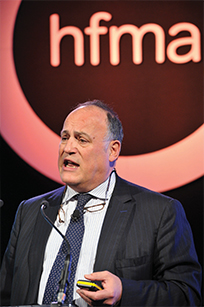Trusts urged to grasp productivity opportunity
Trusts could meet the 18-week referral to treatment (RTT) target by increasing productivity, according to a report for NHS Improvement.
The report said the overall RTT waiting list has been growing since April 2012 and, against a backdrop of rising demand and tightening finances, trusts have tried to tackle this with a range of strategies. Measures included paying for weekend sessions, agency staff and outsourcing to the independent sector.
Alternatively, the report added, trusts could improve theatre productivity by fully using operating list capacity together with the staff and resources already committed for scheduled operations.
The oversight body commissioned Deloitte to analyse theatre productivity across England, which examined data from 92 trusts for the 2017 calendar year. Its report, Operating theatres: opportunities to reduce waiting lists, found significant variations both between trusts and different specialties.
The start of a third of operating lists were delayed by at least 30 minutes; 38% finished early by 30 minutes or more. Theatre time that was lost to late starts, early finishes and delays between operations could have been used to perform up to 291,327 more operations (a 16.8% increase). This included 30,000 more ear, nose and throat operations; an additional 41,000 ophthalmology operations; 27,000 more oral and maxillofacial surgery operations; and 44,000 more urology operations.
The scheduled time allocated to operating lists in the eight highest volume surgical specialties reviewed varied between hospitals and some specialties had consistently higher levels of early finishes, the report said. It added that lists that last the longest appear to offer the greatest productivity opportunities – early finishes are more common for longer lists and the average time between operations on the list is greater.
Tim Briggs (pictured), NHS national director for clinical improvement and council member of the Royal College of Surgeons, said the hard work of surgical staff was ensuring more patients than ever get the care they need. ‘While waiting times for surgery are lower than they have been historically, more can be done, so it is important that we work with clinical teams to identify further solutions and share best practice.’
He was encouraged the report found pockets of innovation. ‘As the NHS long-term plan states, we need to ramp up these efforts where clinically appropriate, so that they become the norm and so that we can address the variation that exists.’
NHS Providers head of policy Amber Jabbal said NHS theatres were among the world’s most productive, though there was scope to increase productivity. But elective throughput could not be viewed in isolation – hospitals faced other pressures that affected their use of theatres.
‘As a result of financial and workforce challenges the number of patients waiting longer than they should be for routine surgery is growing. Addressing this challenge goes beyond how operations are scheduled,’ she said.
‘Theatres cannot be viewed in isolation and we have to be realistic about the current resources in place. Often cancellations and downtime for theatres are because of staffing levels, patient needs and the availability of beds.’Related content
We are excited to bring you a fun packed Eastern Branch Conference in 2025 over three days.
This event is for those that will benefit from an overview of costing in the NHS or those new to costing and will cover why we cost and the processes.